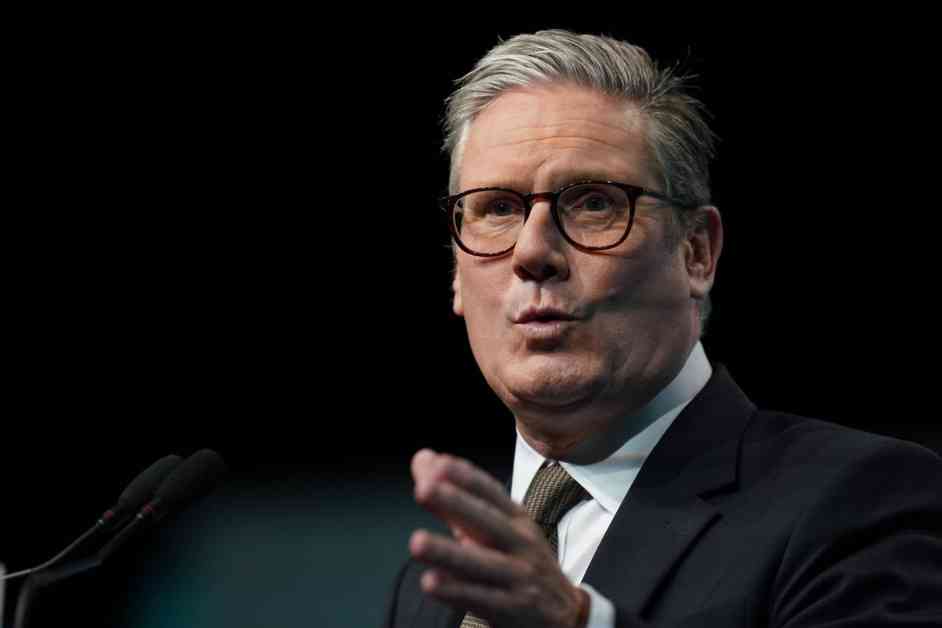Sir Keir Starmer, the leader of the Labour Party, has emerged victorious in a crucial vote on the winter fuel allowance, successfully defeating a backbench rebellion within his own party. The Government’s majority fell to 120 as MPs voted 348 to 228 to axe the payment for all but the country’s poorest pensioners. This decision marks a significant shift in policy that has sparked debate and controversy across the political spectrum.
Backbench Rebellion and Government Response
The vote on the winter fuel allowance saw a significant divide within the Labour Party, with some backbenchers expressing opposition to the proposed cut. One Labour backbencher, Jon Trickett, broke ranks with the party and supported the Conservative motion to block the policy. Additionally, 53 MPs, including seven ministers, had no vote recorded, with some reportedly given permission not to attend the vote.
Despite the dissent within his own ranks, Sir Keir Starmer managed to secure a majority in favor of cutting the winter fuel allowance. The Government’s working majority of 167 was reduced to 120, highlighting the contentious nature of the decision. Number 10 had maintained a firm stance leading up to the vote, refusing to soften the impact of the cut and emphasizing the need to address a “£22 billion black hole” in the public finances.
Impact on Pensioners and Opposition Response
The decision to cut the winter fuel allowance has raised concerns about the welfare of millions of pensioners who will no longer receive this support. The policy change will only allow those claiming pension credit or other means-tested benefits to receive assistance with their energy bills this winter, leaving many vulnerable individuals without essential financial aid.
Opposition MPs, including some former Labour backbenchers who had lost the whip earlier in the year, criticized the Government’s decision to cut the winter fuel allowance. Apsana Begum, Zarah Sultana, John McDonnell, Ian Byrne, and Richard Burgon all voted with the opposition, while Rebecca Long-Bailey and Imran Hussain abstained from the vote. These MPs expressed concerns about the potential impact of the cut on pensioners and called for alternative measures to address the public finances.
Labour’s Response and Criticism
Labour MPs who opposed the cut to the winter fuel allowance highlighted the potential consequences of this decision on vulnerable pensioners. Jon Trickett, a former member of Jeremy Corbyn’s shadow cabinet, emphasized the risk of increased poverty among pensioners during the winter months and expressed his opposition to making constituents poorer. Trickett called for a fairer distribution of wealth and criticized the Government’s approach to addressing the financial shortfall.
Bell Ribeiro-Addy, a Labour MP who was unable to attend the vote due to personal reasons, stated that she would have voted against the cuts if she had been present. Ribeiro-Addy highlighted the importance of standing up for pensioners and ensuring their dignity and security in retirement. The decision to cut the winter fuel allowance has sparked debate within the Labour Party and raised questions about the Government’s priorities in addressing economic challenges.
Public Response and Future Implications
The vote on the winter fuel allowance has elicited a mixed response from the public, with some expressing support for the Government’s efforts to address the public finances and others voicing concern about the impact on pensioners. The decision to cut the payment has raised questions about the Government’s commitment to supporting vulnerable individuals and addressing social inequalities.
As the full state pension is set to rise by £460 from next April, according to official wage figures, the debate over the winter fuel allowance is likely to continue. Tory chairman Richard Fuller MP criticized Labour’s decision to cut the payment, accusing the party of prioritizing trade union interests over the welfare of pensioners. The implications of this policy change on pensioners and the wider public will be closely monitored in the coming months.
In conclusion, the vote on the winter fuel allowance has highlighted the complex challenges facing policymakers in balancing fiscal responsibility with social welfare. The decision to cut the payment has sparked debate and dissent within the Labour Party, raising questions about the Government’s approach to addressing economic challenges. As the impact of this policy change unfolds, it will be essential to monitor its effects on vulnerable pensioners and consider alternative measures to support those in need.












